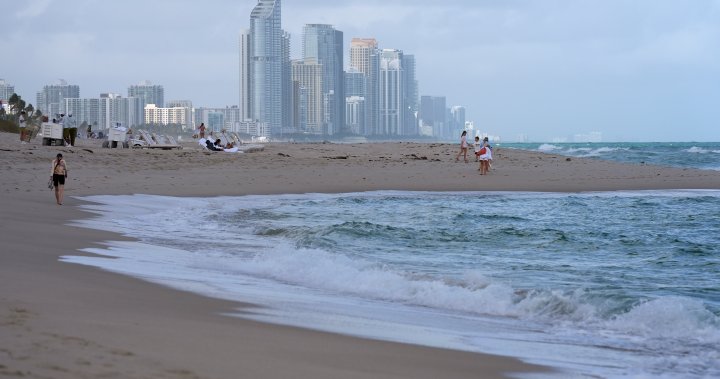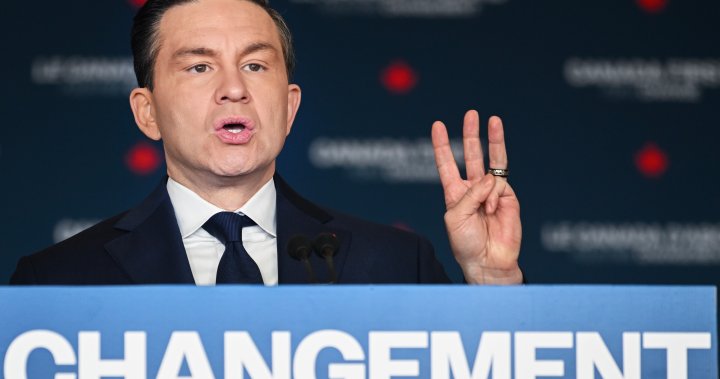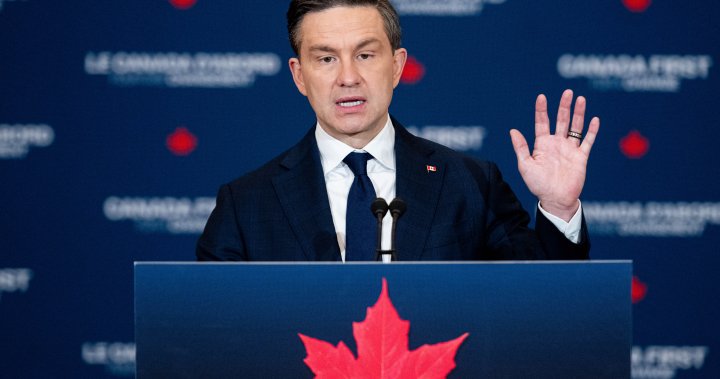Snowbird selloff: Canadians are parting ways with U.S. properties – National

Over the last 15 years, grain farmer Dale McMullen has escaped the Alberta cold for sunny Arizona. But after this winter, he has no plans on returning.
“The papers are signed,” said the Innisfail, Alta., resident. “I don’t want to spend another one of my dollars down there.”
He and his wife sold their winter home in Phoenix. It closed this Friday.
“We’ve been tolerating the poor dollar for a few years, hoping that it would get better. But now this political mess with the U.S. and Mr. Trump. It’s very, very insulting,” said McMullen, who returned to Canada last Sunday.
“It was just almost like a relief to be home.“

He says he’ll miss his second home, the wonderful weather, and his American friends.
“We had many people stop and apologize for what’s happening. And they feel terrible. But I mean, it is what it is. They elected the man,” said McMullen.
The McMullens are part of a real estate exodus. In the face of a trade war with the U.S., President Donald Trump’s annexation threats, and the falling Canadian dollar, snowbirds are increasingly selling their U.S. properties, say realtors.

“My phone’s been ringing off the hook. I normally have two, three listings at a time at this time of the year,” said Laurie Lavine of Arizona Premier Realty. “Right now I have 16.”

Get breaking National news
For news impacting Canada and around the world, sign up for breaking news alerts delivered directly to you when they happen.
The dual citizen says listings have jumped since Trump’s inauguration on Jan. 20, and his increasingly hostile rhetoric towards Canada.
“The last straw that broke the camel’s back was when the current administration, the president, started talking about Canada becoming the 51st state,” said Lavine.
The realtor worked in Calgary, before moving to Phoenix 16 years ago, and says he — like many of his Canadian clients — is “ticked off” with Trump.
“It’s just one thing after the other that’s building up,” said Lavine. “It’s feeling bullied, threatened, and worried.”
The snowbird selloff is happening in the western and eastern U.S.

Catherine Spino, a real estate agent in South Florida, who has also seen a surge in Canadian clients parting ways with their U.S. homes, points to rising costs and prolonged uncertainty.
“It’s a lot of unknowns,” said Spino.
Canadians top the list of foreign buyers in the U.S. making up 13 percent of home purchases — most in Florida and Arizona — last year, according to a report from the U.S. organization the National Association of Realtors.

Manitoba retiree Bob Gass has been a snowbird for the last 15 years and owns a home with his wife in south-central Florida. The 72-year-old says several Canadians have put up “for sale” signs in the neighbourhood.
“If you’re Canadian, you’re either putting your house up for sale and leaving or you’re talking about it. And that’s where my wife and I are now,” said Gass.
“We’d like to go there a few more years in the wintertime, but we’re just not sure what we’re going to do.”

The 72-year-old from McCreary, Man., is concerned with the costly currency exchange, the U.S. tariffs against Canada and a thickening of the border.
On Friday, new rules went into effect, requiring visitors staying in the United States for more than 30 days to register with the U.S. government.
“We’d like to comply, but if that becomes a problem, then we’ve got to sell our house and get out,” said Gass.
McMullen said he made up his mind after Trump threatened Canadian sovereignty and called former prime minister Justin Trudeau ‘”governor.”
“Enough is enough. We don’t want to support that anymore. We came home and we’ll join in and get our elbows up,” he said.
© 2025 Global News, a division of Corus Entertainment Inc.








